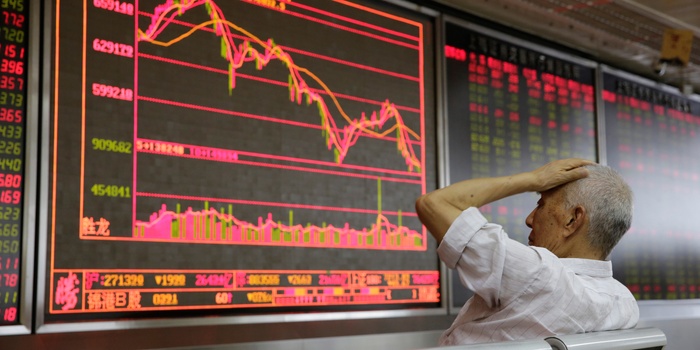5 Things You Should Never Do After a Stock Market Crash - And How to Navigate Turbulent Times Wisely

A stock market crash can feel like an emotional earthquake, shaking both investors and traders to their core. The chaos can lead to impulsive actions that often have adverse effects. To navigate through such turbulent times wisely, it’s essential to avoid making certain mistakes. Here are five things you should never do after a stock market crash, along with strategies to help you make informed decisions.
1. Avoid Panic Selling
Panic selling is one of the most common reactions after a market crash. When prices plummet, many investors hastily sell their stocks to avoid further losses. However, reacting in a panic can lead to significant financial setbacks.
Why You Should Avoid It:
- Selling at the Lowest Point: Crashes are often short-term events, and markets frequently recover once the initial shock wears off. Selling during a downturn can force you to offload your assets at depressed prices.
- Missing Out on Gains: Historically, markets tend to rebound after a crash. If you sell at the bottom, you might miss out on substantial gains during the recovery phase.
Strategy: Stay calm and assess the reasons behind the market decline. Review your investment goals and the fundamentals of your portfolio. Consult with a financial advisor to help you navigate through the turbulence and avoid hasty decisions.

2. Don’t Abandon Your Long-Term Plan
In the aftermath of a stock market crash, it’s tempting to question or abandon your long-term investment strategy. The short-term volatility can lead to second-guessing your entire approach.
Why You Should Avoid It:
- Focus on Long-Term Goals: Markets are volatile, and short-term fluctuations should not derail long-term investment strategies. The essence of long-term investing is to weather the storms and benefit from eventual market recoveries.
- Strategic Missteps: Altering your long-term plan based on temporary market movements can destabilize your investment strategy and potentially undermine future returns.
Strategy: Keep your long-term goals in mind and periodically review your investment strategy to ensure it aligns with these objectives. Diversification and a steady approach can help you stay on track despite short-term market fluctuations.

3. Don’t Invest in “Bargains” Without Due Diligence
Post-crash markets often present numerous so-called “bargains” — stocks or assets that have dropped significantly in price. The urge to snap up these bargains can be strong, but caution is crucial.
Why You Should Avoid It:
- Quality vs. Price: Not all discounted assets are good buys. The drop in price might be a sign of deeper underlying problems within the company or asset.
- Lack of Fundamental Analysis: Investing in assets solely because they are cheap without a thorough analysis can lead to poor investment choices. The low price might reflect genuine issues that could lead to further losses.
Strategy: Conduct a detailed analysis of any asset you consider buying. Look at the company’s financial health, future prospects, and overall market conditions. Make sure that the investment aligns with your long-term goals and risk tolerance.

4. Don’t Ignore Risk Management
A market crash might tempt you to ignore risks or assume that the worst is over. However, understanding and managing risks is crucial to protect your investments.
Why You Should Avoid It:
- Underestimating Risks: Overlooking potential risks can lead to severe losses, especially if market conditions remain unstable.
- Inadequate Protection: Without proper risk management, you may find yourself unprepared for future market downturns, potentially exacerbating your losses.
Strategy: Regularly assess your risk tolerance and ensure your portfolio is diversified to mitigate potential losses. Consider employing risk management strategies such as setting stop-loss orders or hedging your investments to safeguard against future volatility.

5. Don’t Rely on Unverified Sources
During market crashes, a flood of opinions and advice surfaces, often from sources with questionable credibility. Relying on unreliable or emotional sources can lead to poor investment decisions.
Why You Should Avoid It:
- Questionable Credibility: Not all advice is based on sound analysis. Emotional or sensationalist commentary can mislead you and impact your decision-making negatively.
- Lack of In-Depth Analysis: Many sources offer superficial insights without thorough analysis, which can lead to misguided decisions based on incomplete information.
Strategy: Seek information from reputable financial news sources and consult with experienced financial advisors. Rely on well-researched, credible analysis and avoid making decisions based on sensationalist or unverified advice.

By avoiding these common pitfalls, you can better navigate the aftermath of a stock market crash and make more informed, strategic decisions. Staying calm, evaluating your options carefully, and relying on credible information are key to protecting your investments and positioning yourself for future success.
For more insights and detailed analysis on stock market trends, blockchain technology, Web3 innovations, and cryptocurrencies, visit Blockpro.us.

Comments
Post a Comment